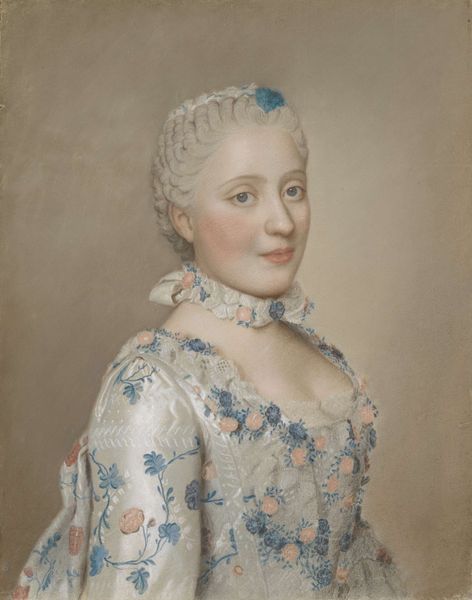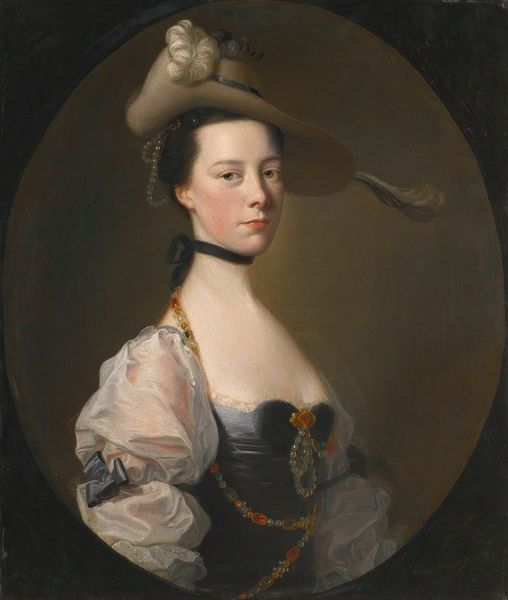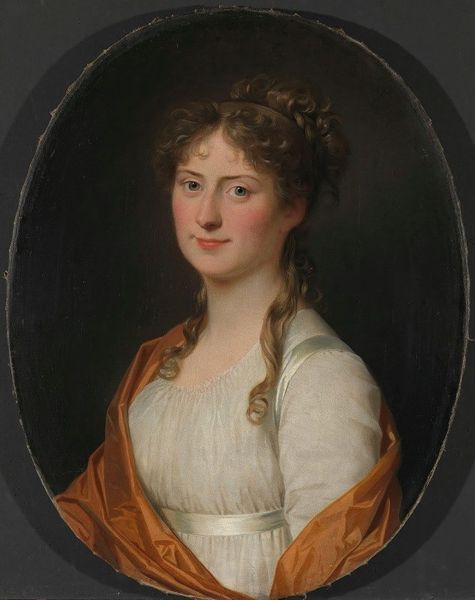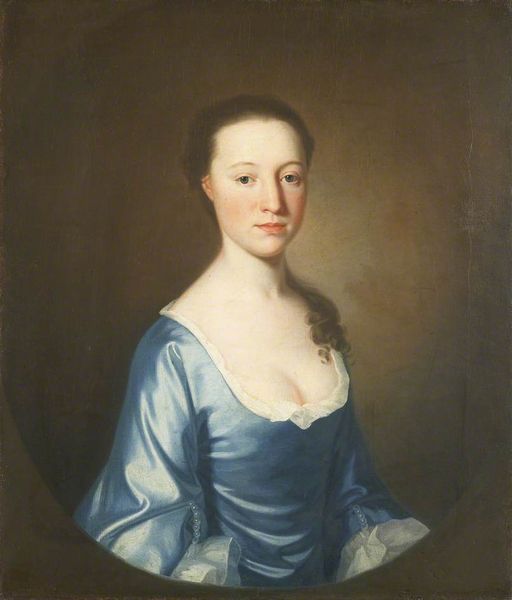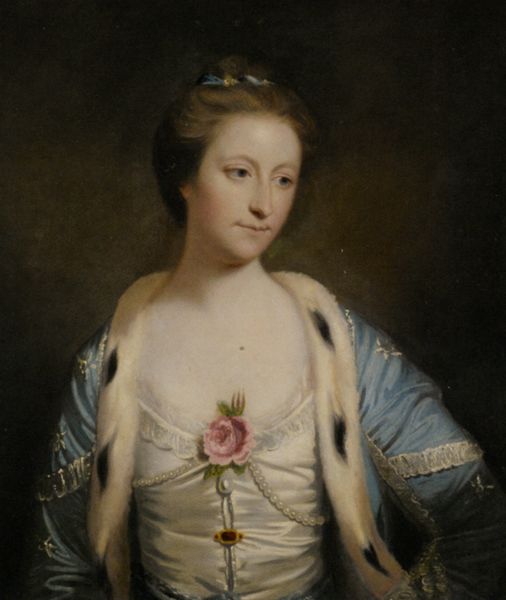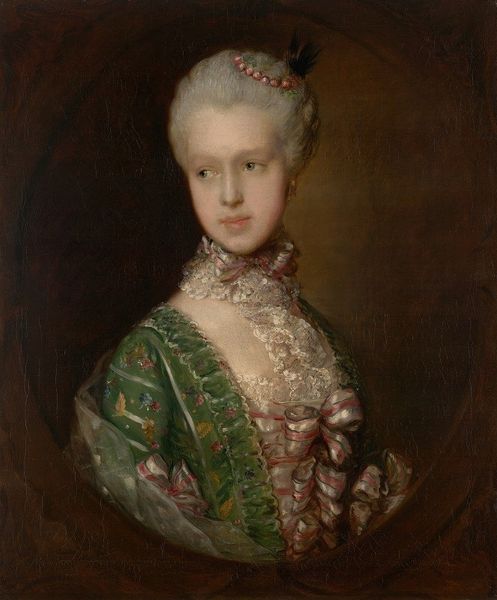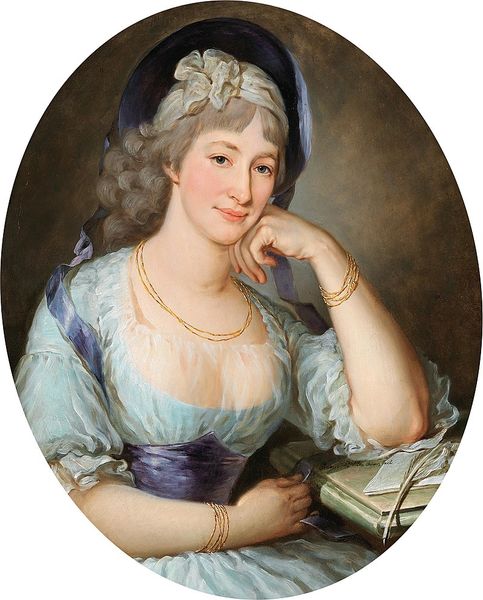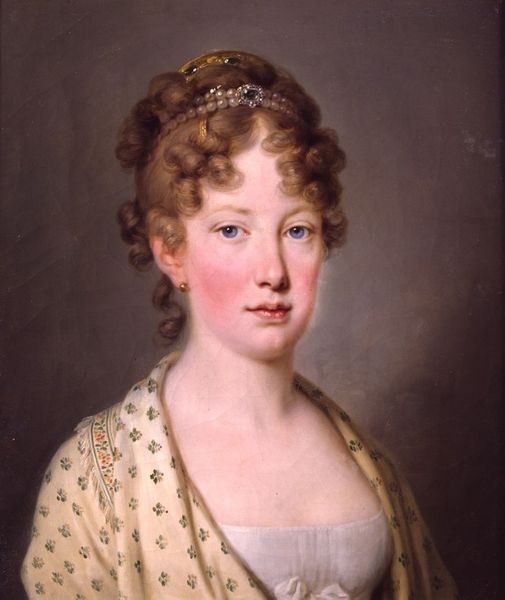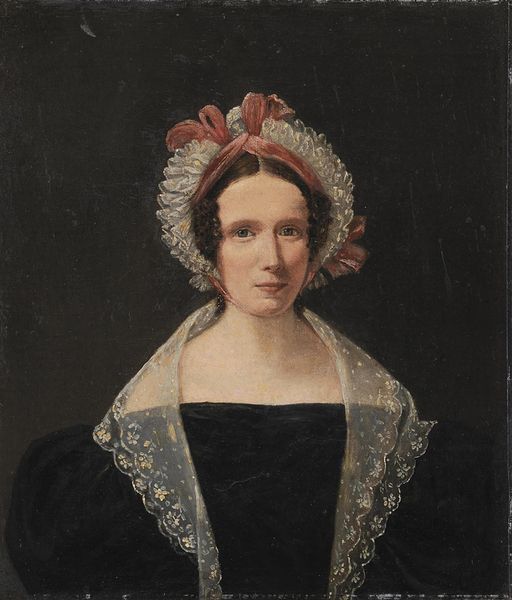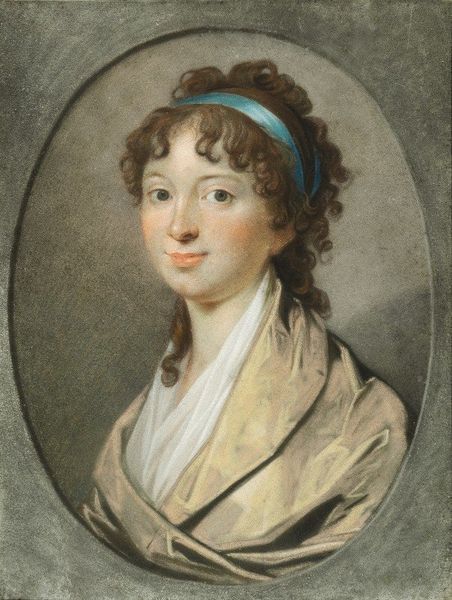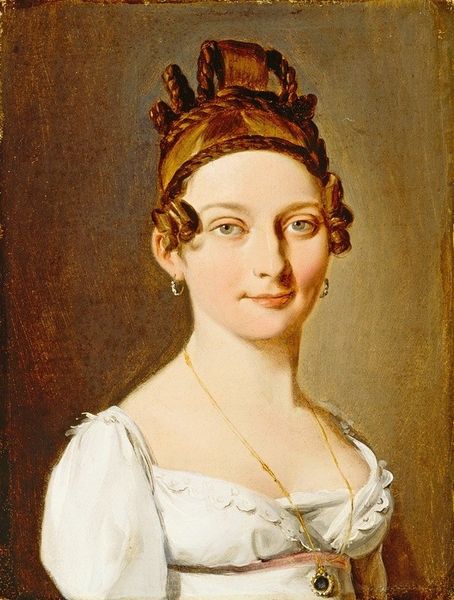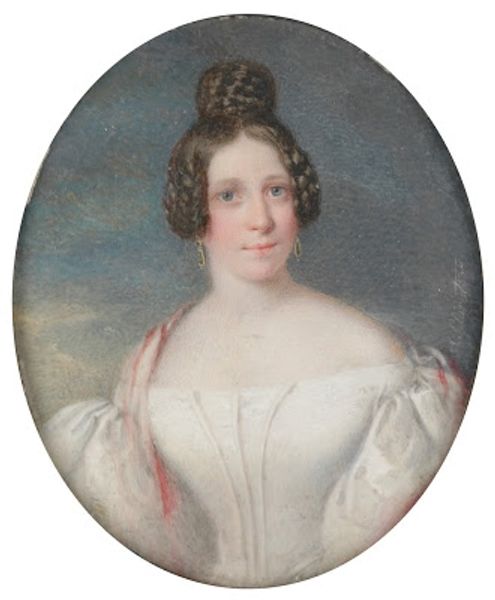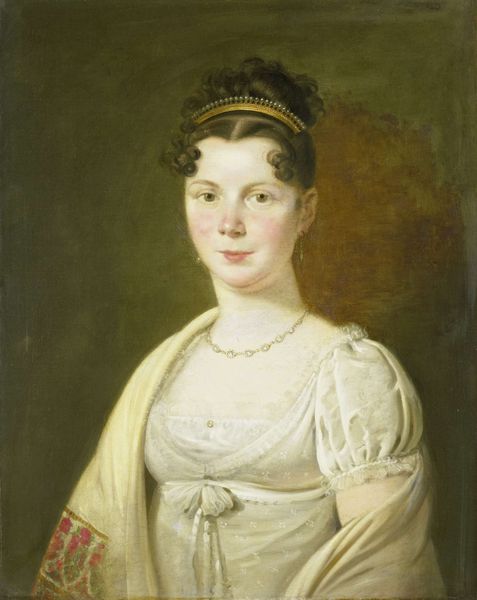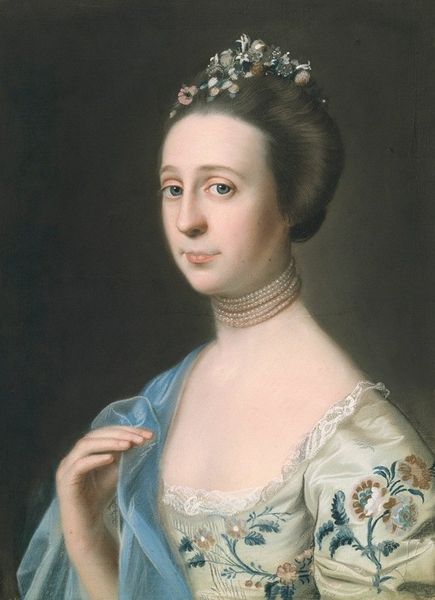
pastel
#
portrait
#
head
#
portrait image
#
portrait reference
#
portrait head and shoulder
#
animal drawing portrait
#
portrait drawing
#
pastel
#
facial portrait
#
portrait art
#
fine art portrait
#
rococo
#
celebrity portrait
#
digital portrait
Copyright: Public domain
Editor: Here we have Jean-Étienne Liotard's pastel portrait of "Lady Ann Somerset, Countess of Northampton (at the Age of About 14)". The smoothness of the pastel gives her a striking ethereal quality, almost like a doll. How do you interpret this work? Curator: Looking at Lady Ann, what immediately strikes me is the performance of femininity and class. This pastel isn't simply a depiction; it's a construction of identity rooted in the societal expectations of the aristocracy. Notice her gaze – demure, yet self-aware. How does that speak to the power dynamics inherent in portraiture, where the subject is simultaneously objectified and celebrated? Editor: That's fascinating. It's almost as if she's both presenting herself and being presented. Curator: Precisely. And let’s consider the attire – the soft fabrics, the delicate floral embroidery, the hint of lace. These details, while seemingly innocuous, reinforce the ideals of femininity as delicate and ornamental, intended for the male gaze. It places her within a lineage of women whose value was often tied to their appearance and marital prospects. Do you see how her youth complicates this further? Editor: I see what you mean. At fourteen, she's on the cusp of adulthood, being molded into this role. The portrait freezes her at this transition, almost like a specimen. Curator: A very apt observation. Liotard has captured not just an individual, but a system at work, a system that perpetuates social norms through visual representation. Consider how later feminist artists have responded to and subverted this tradition of portraiture to reclaim agency and challenge conventional beauty standards. Editor: This has really changed how I see the painting. I went from thinking of it as just a pretty picture to realizing its embedded social context. Curator: And that's the power of art history. It’s not enough to simply appreciate beauty, we have to ask who defines it and what purpose it serves.
Comments
No comments
Be the first to comment and join the conversation on the ultimate creative platform.
